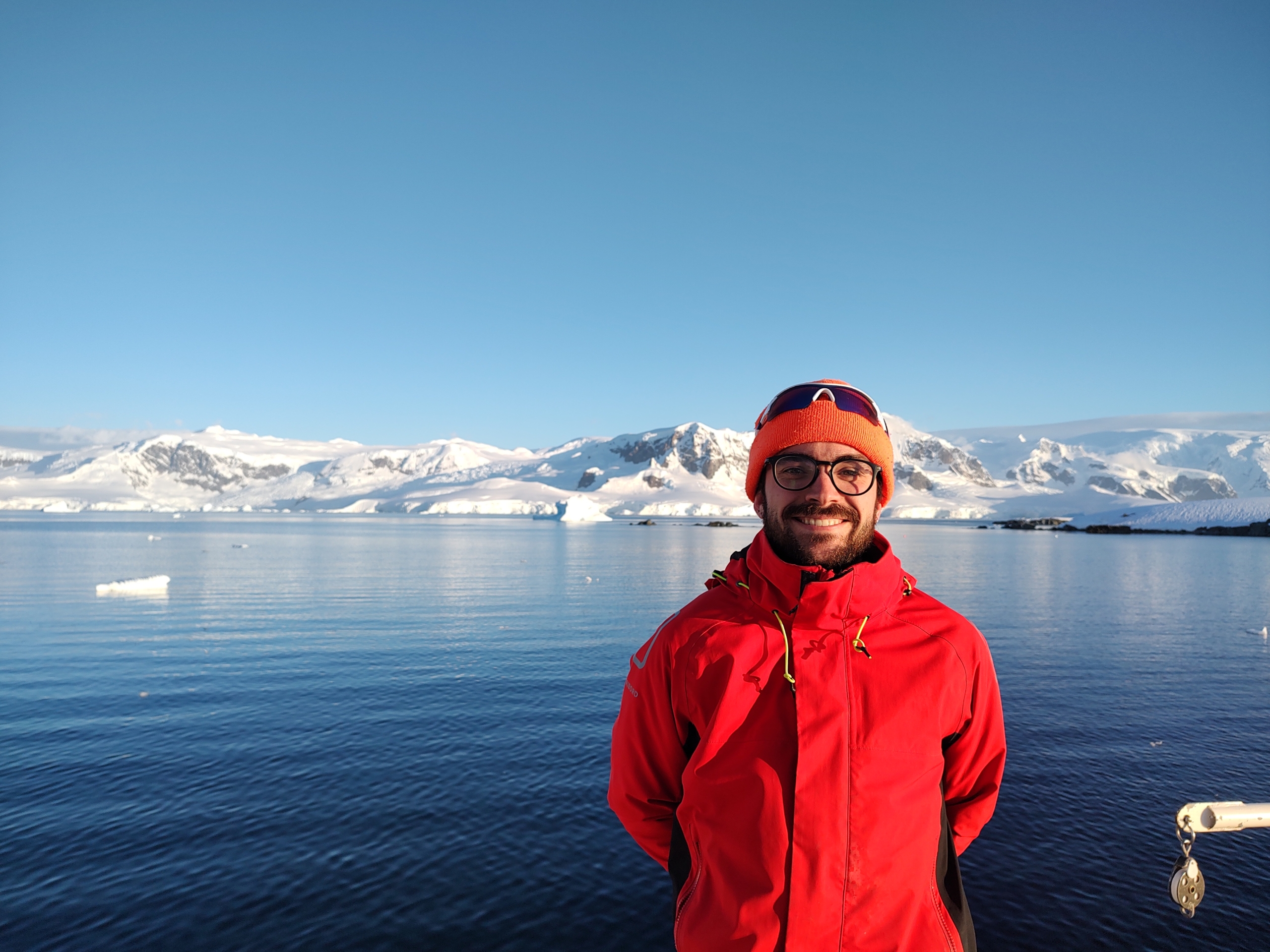
Anthony VOISIN
Marine ecology, trophic ecology (stable isotopes, fatty acids)
PhD candidate (joint supervision)
Université de Bretagne Occidentale et Université de Liège

Marine ecology, trophic ecology (stable isotopes, fatty acids)
PhD candidate (joint supervision)
Université de Bretagne Occidentale et Université de Liège
LEMAR et LETIS laboratories
Discovery
+33 (0) 2 98 49 86 27 (Office A240)
BRUTAL : BiodiveRsity Under rapid environmenTAL change: trophic interactions and communities’ responses in austral benthic ecosystems.
Julien Thébault, Gauthier Schaal et Gilles Lepoint (joint supervision between Western Brittany University UBO and University of Liege).
In the Southern Ocean, global changes have led to rapid environmental shifts, with consequences for biodiversity and ecosystem functioning. In some regions of Antarctica, such as the West Antarctic Peninsula, where sea ice cover is decreasing in response to global warming, significant changes in primary production, food availability, and energy fluxes to the benthic compartment are being observed, with potential implications for ecological interactions.
This project will focus on shallow benthic communities in the Antarctic Peninsula and the Strait of Magellan to understand the impacts of environmental differences on community structure and trophic interactions. This project is structured around two main axes:
___
Project : Proposal for the development of the WFD/MSFD indicator subtidal macroalgae and associated fauna.
Olivier Gauthier, Jacques Grall, Aodren Le Gal et Sandrine Derrien-Courtel
The development of ecological indicators, resulting from applied research, contributes to the knowledge, understanding, management and conservation of natural environments. The European directives (WFD and DCSMM) contribute to the evaluation of water bodies and marine sub-regions of the French coasts of the Channel and the Atlantic. As part of the continued development of the WFD indicator “subtidal macroalgae”, monitoring data, all devices combined, were analyzed by different approaches and in particular via the “General Purpose Biological Index” (GPBI, Labrune et al., 2021), in order to determine its relevance. Multivariate analyses confirmed the need to categorize water bodies into different types and to separate the analyses according to the depths and kingdoms of the organisms. The GPBI made it possible to obtain higher evaluations for certain water bodies whose WFD-2 indicator devalued the ecological quality, due to their characteristics (natural turbidity, indicator only based on the infralittoral). However, there are still some limitations, mainly due to the lack of usable pressure data at the scale of the stations and the coastline. Therefore, recommendations and suggestions for acquisition are made in this sense. In conclusion, three options are considered according to several methods of downgrading and aggregating the indicators.

 Marie BONNIN
Marie BONNINNotifications